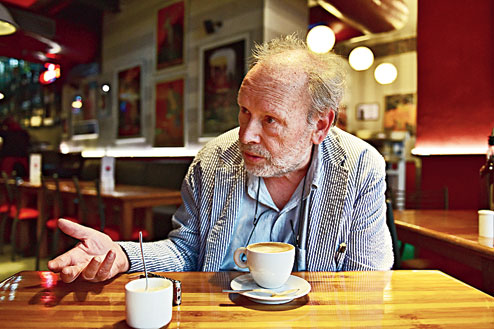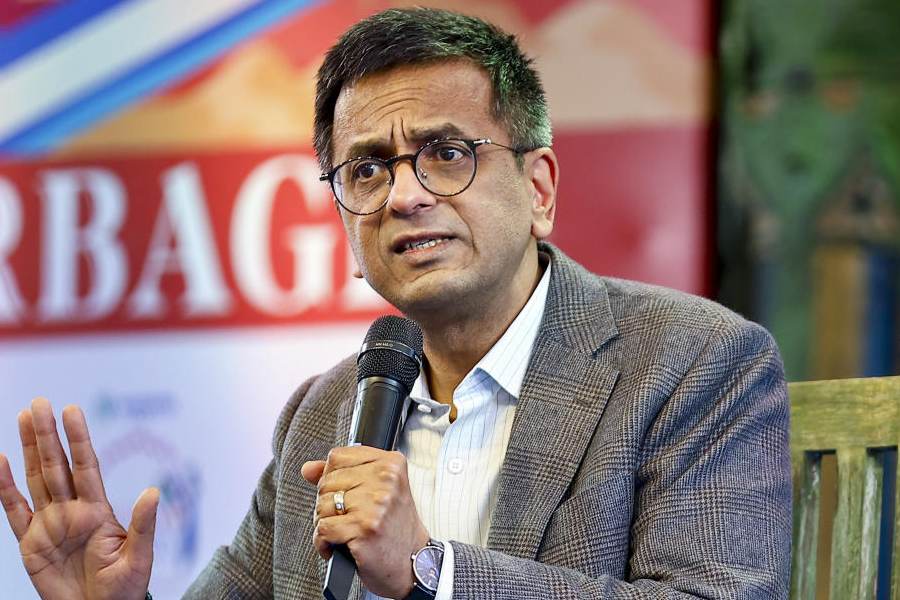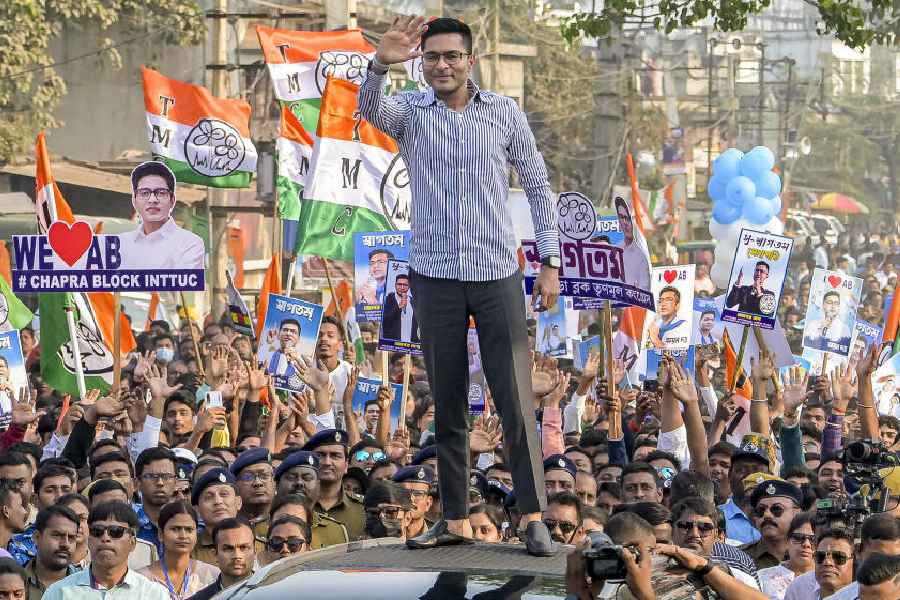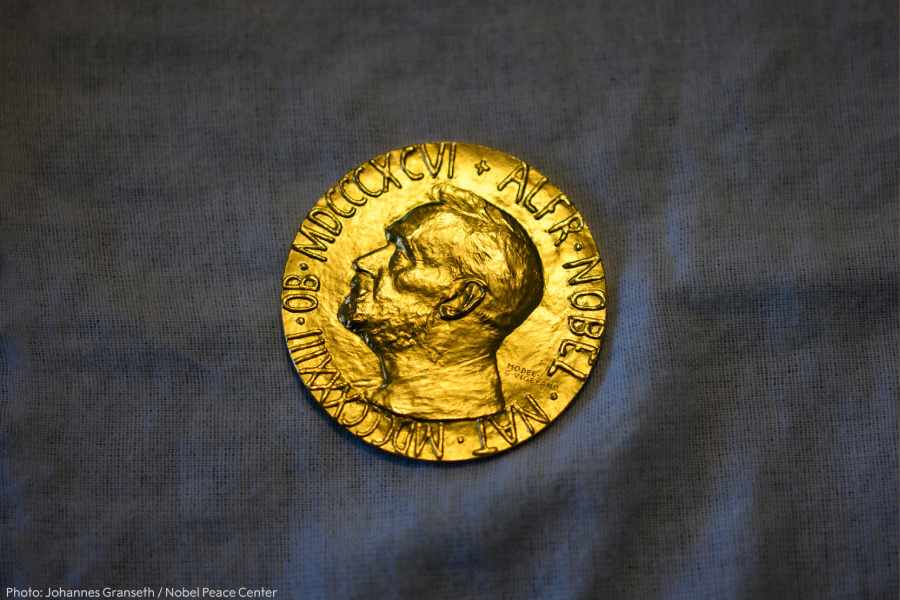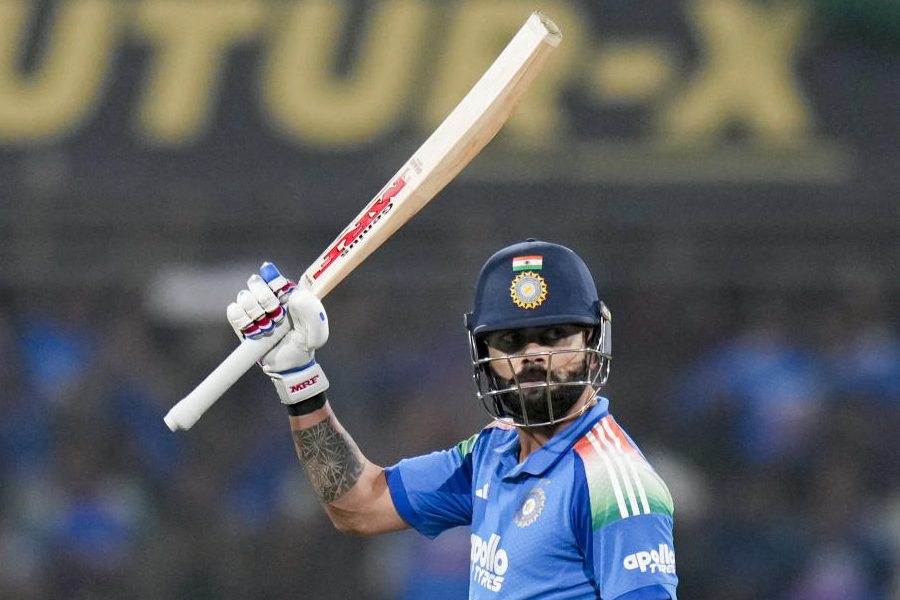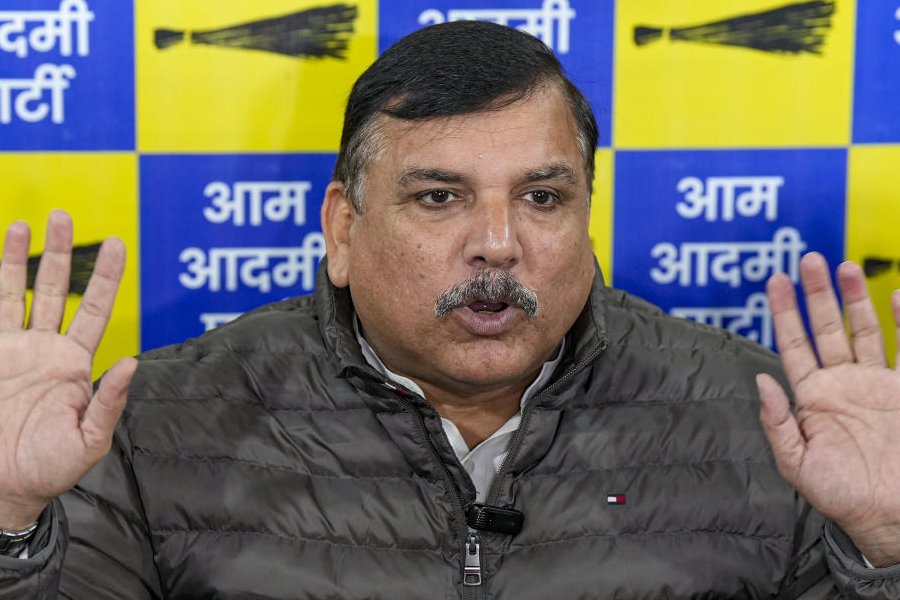
He’s been a foreign correspondent for The Sunday Times, London, editor for Granta, author of four books and columnist for The Telegraph, Calcutta. Now he writes for The Guardian and (often) contemplates a fifth book. So, when we set up a chat with Ian Jack, we asked journalism and literature students of Calcutta to send us questions, and added some of our own.
Many people think writing for tabloids and entertainment sections of a paper is ‘easy’ while working in news is ‘real’ journalism. What do you feel?
Well, the phrase ‘real’ journalism is rather confusing to me. What is journalism? Is this journalism (this interview)? Is this reporting? It’s just me having coffee with you in a cafe in Calcutta. So, I think I am all for reporting, I think reporting is a wonderful thing to do, it’s an important thing to do.
Should an investigative journalist consider the after-effects of the publication of the report?
(Thinks) Yes, I think any journalist should have, somewhere in the back of his mind, or even in the front of his mind, some idea or some concern for the consequences of what he writes. But whether that should inhibit what he or she says or writes….
If you have done an investigative piece of reporting in a situation of conflict and its publication means that people would consequently die, then you should really bear that in mind, you should weigh as to how important what you have to say is. I mean, historically, in certain situations, in wars between nation states for instance, even apart from the fact that you couldn’t write certain things because of censorship, there comes a moral compulsion to not write them because of the damage you would do to the national interest.
I don’t think there are any kind of hard and fast rules about these things but generally, in more normal peace-time situations, I think disclosure is probably more important to the people it hurts. But you have to take this a story at a time, it’s too difficult to lay down a rule.
Are there any specific skills a foreign correspondent must have, as compared to a regular reporter?
No, I don’t think so. I think Nicholas Tomalin, who was a great The Sunday Times writer, wrote, “A good journalist needs a little literary ability, some rat-like cunning, and a working knowledge of railway timetables.” And I think those things hold good for a reporter at home or abroad. The thing that really fuels the reporting ability is curiosity.
With one proviso, some knowledge of where you are helps. And understanding the language helps.
I want to write for the print medium after college. Do newspapers have a future?
Oh, in India much longer than they do in Britain (laughs). So that’s one consolation.
t2: Can you give us a sense of what’s happening with newspapers in Britain at the moment?
Well, unlike India, which has several centres of publication — Calcutta, Delhi, Mumbai, Chennai... — London is essentially the centre of the so-called national newspapers. There are provincial newspapers as well but they are not important anymore. So there are the so-called quality newspapers… The Telegraph, The Guardian, The Times, The Financial Times and The Independent…. They are all losing circulation at about 10 per cent a year. Then there are the tabloids, the so-called ‘red tops’ — The Mirror, The Sun, The Star — those are the most vulgar tabloids, the genuinely ‘tabloid’ tabloids. They are also losing circulation. And then there are The Mail and The Express, which are kind of middle-market tabloids, slightly more sophisticated, intensely political, they are also losing circulation. The same is true of the Sunday papers — The Sunday Times, The Sunday Telegraph.... I would say The Daily Mail is the paper that is losing circulation the least.
So, the market as a whole is losing circulation, kind of unstoppably. And it’s being doing that for many years. But what The Guardian has done very successfully is that it has one of the most-used and best-regarded websites in the world. So it’s established a big readership in Australia and America, where it has special editions online. Sometimes there’s talk of it doing the same in India. The problem is how do you make it pay?
Unlike The Times, The Guardian isn’t behind a paywall and one of the reasons is the BBC, which has a free website. It generates material not just for what goes on the news, it has features, reports separate to the news… and it’s free! It’s quite something to compete against that if you are charging money.
I was very sceptical when The Guardian was investing so much money to go digital and they have invested a great, great deal, but I think Alan Rusbridger, the editor, did the right thing. Because now you can see so much scope for online publications.
For the First World War, one of the things The Guardian did was they published lots of pictures of the battlefields, destroyed villages, trenches and if you just put your cursor on them and pressed, they showed pictures of the same places today. That was a magical thing to do! Such possibilities have released a new creativity into journalism. So, I am not sceptical anymore. Now I actually think the sooner the papers do it [go digital], the better.
How will traditional media have to adapt to the digital age, especially in times of citizen journalism and social media?
Social media is just a huge change in the way we all live and think. It’s irresistible and everybody uses it.
Everybody has a mobile now and if there’s an accident scene, you can take a picture. On the other hand, the kind of journalism that has gone missing is people who go places and find things out.
Finding things out is a proper skill, it’s a proper instinct, it’s extremely useful and it is vital to any kind of civilised society and that can only be done by people who have had a little bit of training, people who know the questions to ask, the way to construct a narrative… and this can’t be done easily by social media. It needs people to be paid to do it. It needs professionals with the craft of journalism to do it.
After my graduation, should I go for a journalism diploma or a Masters in my own subject and then try and get into journalism?
Giving advice is tricky, don’t you think? (Laughs) Well, I’d say do a Masters in another subject. Then you’ll know about something and that will become really useful if you’re a journalist. I mean I left school and became a journalist… I didn’t go to university. But the generation that did that has disappeared.
Learning to be a journalist is best done by working somewhere, rather than studying it.
I began on the Glasgow Herald (formally called The Herald, Glasgow) by subediting the fish prices, from fishing ports all across Scotland…. So much haddock, so much herring, so much cod…. These reports would come in by telegram, so I had to make the telegram into a little bit of prose, put the semicolon in the right places… it was humble work but it taught me the rudimentary skills of subediting, and then I went on to other things.
t2: What should be essential reading for anyone interested in journalism?
First, two novels — Scoop by Evelyn Waugh (1938) and Towards the End of the Morning by Michael Frayn (1967). Both are comic novels, because newspapers I think are essentially comic, in the end. The third is a book by Janet Malcolm, the The New Yorker writer, called The Journalist and the Murderer (1990). It’s very interesting… about the techniques of certain kinds of journalism and the moral quandaries posed by certain kinds of journalism.
I’d also recommend people read an essay by George Orwell called Politics and the English Language (1946). It is about clarity and writing.
What has been your most satisfying assignment?
What changed my life really was when I came to India. I came to India to write about harmless subjects like the Indian Railways and eye camps for The Sunday Times Magazine. But while I was here, Mrs Gandhi called the end of the Emergency and my newspaper asked me to stay and cover the elections. And that completely changed my life really. Because I kind of found my subject.
And coming to Calcutta, I’ll always remember that.... Books can have a big influence on you and the book that had a big influence on me was a book by Geoffrey Moorhouse, Calcutta, which is still probably the best book about Calcutta, I think.
IAN JACK’S TIPS FOR JOURNALISTS
for a reporter…
1. Always be curious. Curiosity never lets you down.
2. Always keep a copy of what you write.
3. Never sleep with a colleague. No, seriously.
4. Try, try, try never to embellish or invent, because the temptation is always there.
5. Try to be clear and if possible, be interesting. But if you can’t be interesting, at least be clear.
for a SUBEDITOR…
1. Cheer up! You’re invaluable. Without you the paper would be in a much worse shape.
2. Don’t worry that your name isn’t in the paper. I was a subeditor, I think it’s a very honourable profession and I think there’s a lot of bad reporting and inadequate reporters and you are the person that saves them from exposure by making their prose readable, by making their meanings clearer and by cutting their stories where necessary.
3. And lastly, be kind (laughs). Try and be kind to the prose you are cutting.
ON PUBLISHING...
What skills should one possess to enter the publishing industry?
I think you should be very interested in language. You should be able to express yourself clearly, unambiguously, and you should be interested in literature. But you shouldn’t imagine that every book you publish is going to be literature; it is not. You should be just as interested in a ‘Guidebook to Diamond Harbour’.... You have to have a tolerance for the ordinary. And you have to realise that selling books is an industry. Just being interested in writing is no guarantee that you’ll be very good at publishing. Publishing is about marketing, above any other thing.
With self-publishing on the rise, will editors and publishers still be relevant after a few years?
Yes, they will be, because self-publishing is all very well, but it comes back to how do people get to know about a good book? Sometimes it’s word of mouth, like, Fifty Shades of Grey.… Well, it’s not a good book but it’s a popular book. Even so, that book became a real success when a publisher took it on and marketed it. So it’s making people aware of a book, that’s the tricky thing.
Your advice for aspiring writers?
The best training to write really, is to read. Read good authors. The best non-fiction comes from somebody who knows about a subject, so it’s best to have a subject you are really, really interested in… it could be the Hooghly river pilots, it could be the Calcutta tramways… I’m just mentioning obsessions of my own (laughs).
Apart from reading good writing, try and write something every day; doesn’t matter if it’s rubbish. Maybe keep a diary. As a friend of mine, Jilly Cooper, says, ‘Bum on seat’. Sit down every day and manage to keep sitting and write something every day. That takes discipline. And be lucky.
t2: How can one be lucky?!
Well, you can’t. You can hope to be lucky. I hate to say the next bit, but cultivate connections. The whole business of literary workshopping is partly about meeting people.
t2: A book you have read recently and would recommend?
Although it’s very long, Wade Davis’s Into the Silence. It’s the story of attempts to climb the Everest shortly after the First World War in 1920-21.
Samhita Chakraborty
Picture: Anindya Shankar Ray

